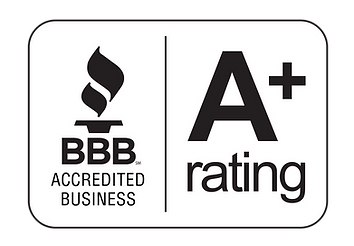STRUCTURED SETTLEMENTS TAX BENEFITS
Tax Benefits Depend on the Type of Damages That Structured Settlement Payments Represent
STRUCTURED SETTLEMENTS TAX BENEFITS
Structured settlements have income tax benefits to those receiving the periodic payments as damages. You may see claims that structured settelment annuities are tax exempt. That is not correct. Whether periodic payments from a structured settlement are income tax free, or tax deferred, depends on the types of damages that the structured settlement payments represent as set forth in the settling parties' settlement agreement and related documents.
When are Structured Settlement Payments Tax Free?

I. Settlements involving personal physical injury, physical sickness, workers compensation or wrongful death
A properly designed structured settlement generates payments that are "
income tax-free" under Internal Revenue Code §104(a)(2), which states, "Gross income does not include...the amount of any damages received (whether by suit or agreement and as lump sums or as periodic payments) on account of personal physical injuries or physical sickness." All income derived from this type of damages is tax-free, regardless of any other sources of income available to you. Amounts received under workers' compensation claims filed after August 5, 1997 also qualify for the exclusion pursuant to IRC §104(a)(1).
Note:
Structured settlements may be used to pay damages for
wrongful incarceration, for which an exclusion applies at IRC §139F and a
non qualified assignment
is used.
What is the value of the tax break associated with a structured settlement?
Check out 4structures' taxable equivalent yield chart. On the same page as the taxable equivalent chart, you will also be able to view the net taxable yield if the alternative investment used for comparison is taxable.
Important Note:
While structured settlement payments representing damages that are income tax free, subject to IRC 104(a) (1), IRC 104(a)(2) or IRC139F, in the event of death of the structured settlement payee, the present value of any due, but not received, certain or guaranteed lump sum future structured settlement payments would be included in the estate of the decedent. Thus, they may be part of the estate or inheritance tax calculation . Plan accordingly. State or inheritance taxes, which apply to the transfer of property at death, may be assessed on both Federal and state levels. The Federal exemption is $13.99 million for 2025 ($27.98 million for married couples), so unless (1) you have a very large settlement in which the present value of the remaining settlement payments at the time of death is in excess of the exempt amount, or (2) the present value of the structured settlement at time of death plus other asset in the name of the decedent at the time of death is in excess of the exempt amount, the Federal may be less of an issue. State estate and inheritance taxes in some states, however, may have lower exemptions and estate and inheritance taxes might be applicable.
The increase in estate tax exemptions under the Tax Cuts and Jobs Act of 2017 is set to sunset on December 31, 2025 resulting in the exemption limits to revert to approximately $7 million (individuals) and $14 million (married couples).
States Which Impose Estate Tax and Their Estate Tax Exemptions for 2025
Connecticut $13,610,000, 12% tax on excess
New York $6,940,000. Phased out for New York taxable estates valued between 100% and 105% of the exemption amount.
Hawaii $5,490,000
Illinois $8,000,000
Oregon $1,000,000
Maine $6,410,000
Maryland $5,000,000
Massachusetts $2,000,000
MInnesota $3,000,000 ($5,000,000 for farmers and small business owners)
Rhode Island $1,816,634
Vermont $5,000,000
Washington $2,193,000 (not expected to increase until late 2025_
District of Columbia $4,710,000
The use of a full or partial "structured settlement commutation rider " may be helpful on the larger cases to which estate and inheritance taxes may apply and liquidity is likely to be an issue. The downside is that the commutation percentage must be decided at time of settlement and may be more or less than needed.
Berkshire Hathaway offers a "shortfall-based" commutation provision that allows for a partial commutation of future payments sufficient to fund payment of estate tax and/or amounts owed to Medicaid that cannot be satisfied by the assets in the decedent's Special Needs Trust. There is special language that must be included in the Settlement Agreement and the Qualified Assignment documents. Another option is a Hardship Exchange at comparably favorable rates to its annuitants which uses the procedure set forth in IRC §5891, permitting a more precise liquidity event.
II. Settlements involving taxable damages or structured attorney fees or attorney fee deferrals
"Tax-Deferred" means that taxes on an investment are merely delayed to a later date, when through surrender or withdrawal, income is received and taxes become due. In certain situations, the annuitant may be in a lower tax bracket, and may benefit from the interest earned on the "Taxation of structure settlement payments depends on the type of damages", but income earnings will never be "tax-free."
Attorneys who properly structure their fees may benefit from tax deferral, For more information, please review the section on structuring attorney fees or call us!
Plaintiffs in cases involving taxable damages (punitive damages, employment litigation, environmental cleanups and monitoring, contract disputes, psychological claims unrelated to personal injury, post judgment interest and more), or where a portion of the damages may be taxable, may also benefit from a tax-deferred solution utilizing non-qualified assignments and other solutions. If constructive receipt has already occurred, then a non-qualified assignment may not be possible.
III Using Structured Settlements in Construction Defect Cases
Construction defect cases are more nuanced and portions of damages paid might be considered a return of basis, such as the original investment as well as capitalized costs, such as attorney fees. While they may be untaxed, they are not excludable under the same code section as personal physical injury or physical sickness. Read more Construction Defect Structured Settlements (4structures.com)
IV RESOURCES
Tax Implications of Settlements and Judgments | Internal Revenue Service (irs.gov)
Last updated June 18, 2025
#structuredsettlementtax #taxbenefitsstructuredsettlements #taxadvantagesofstructuredsettlement #structuredsettlementtax





